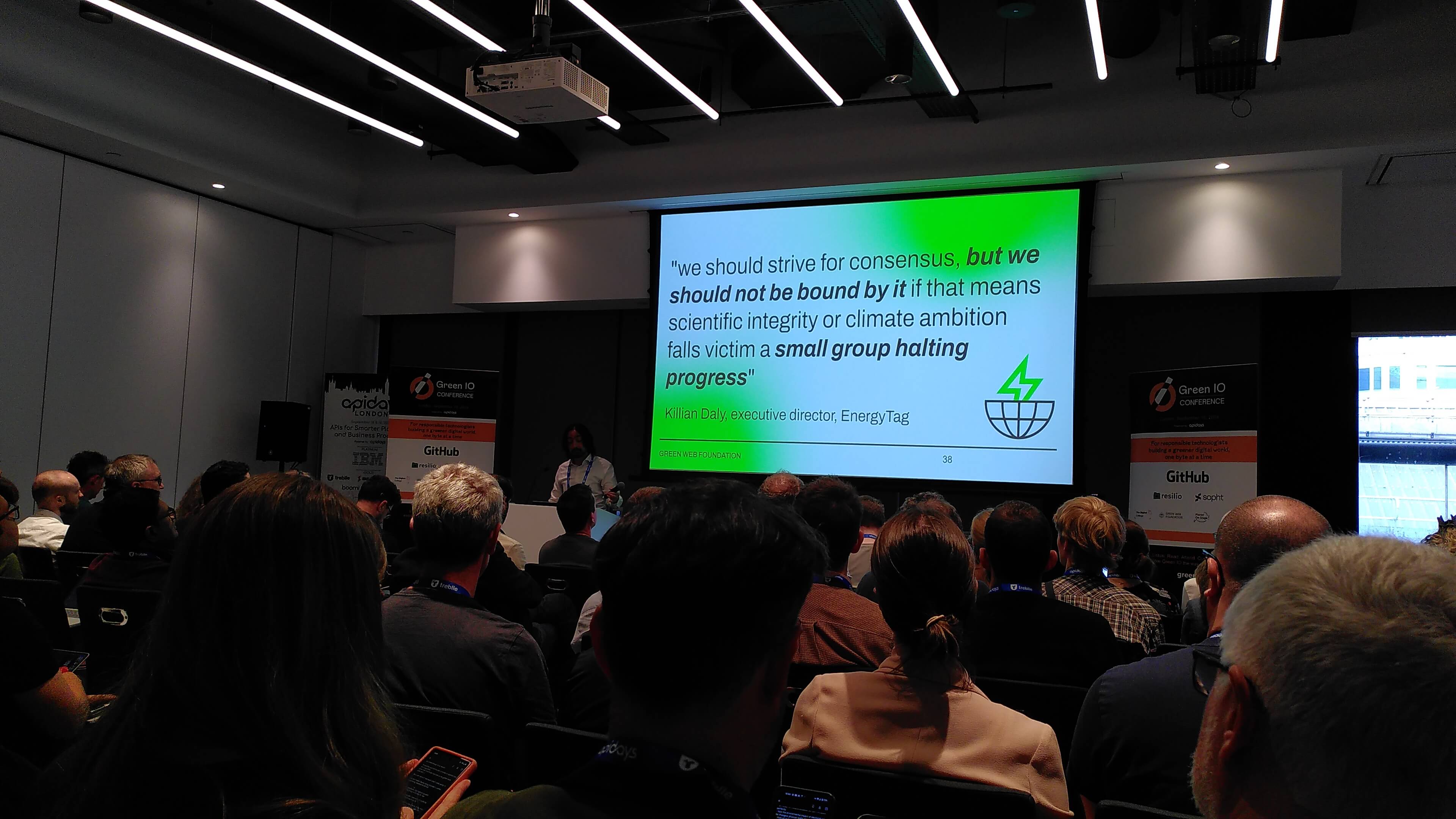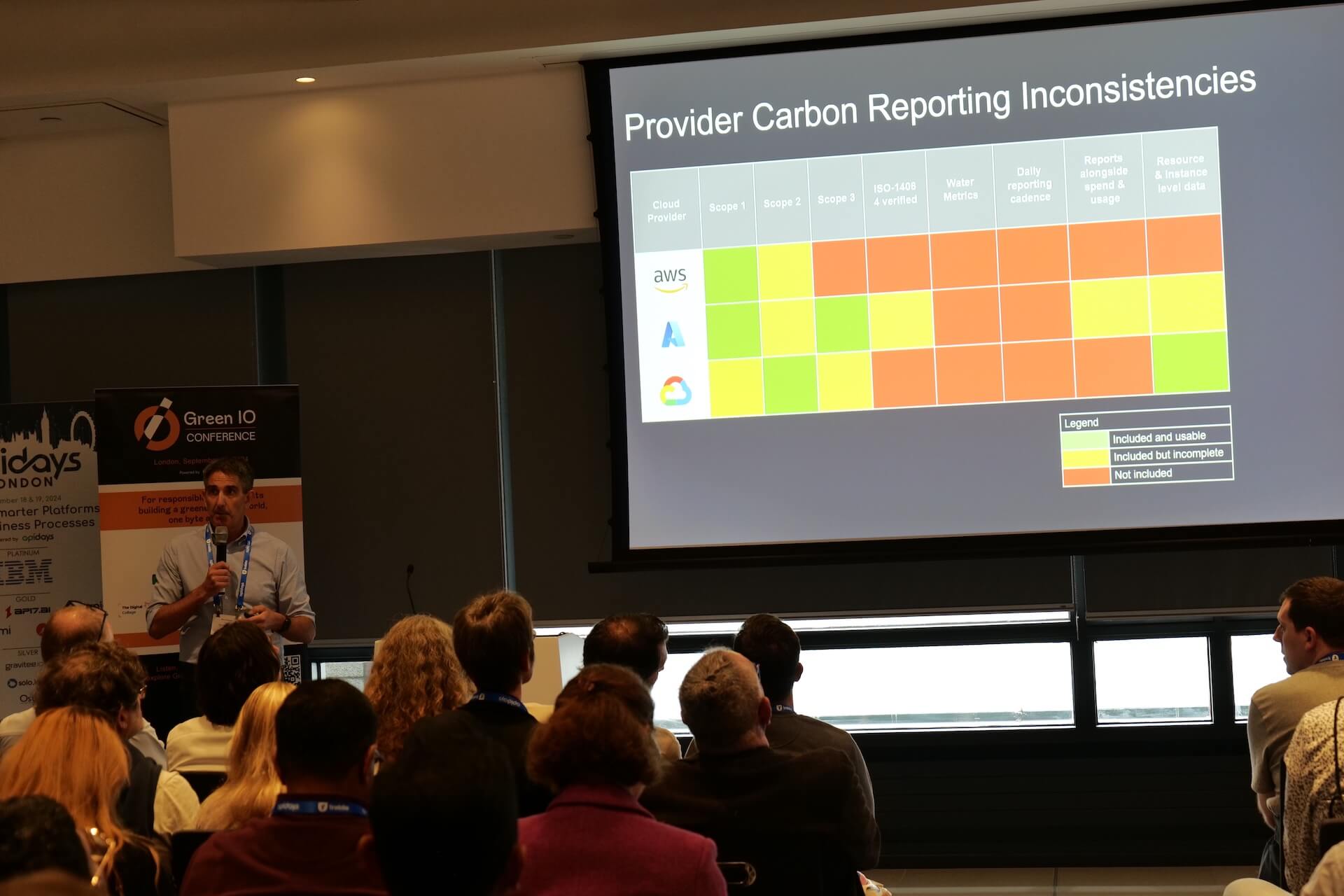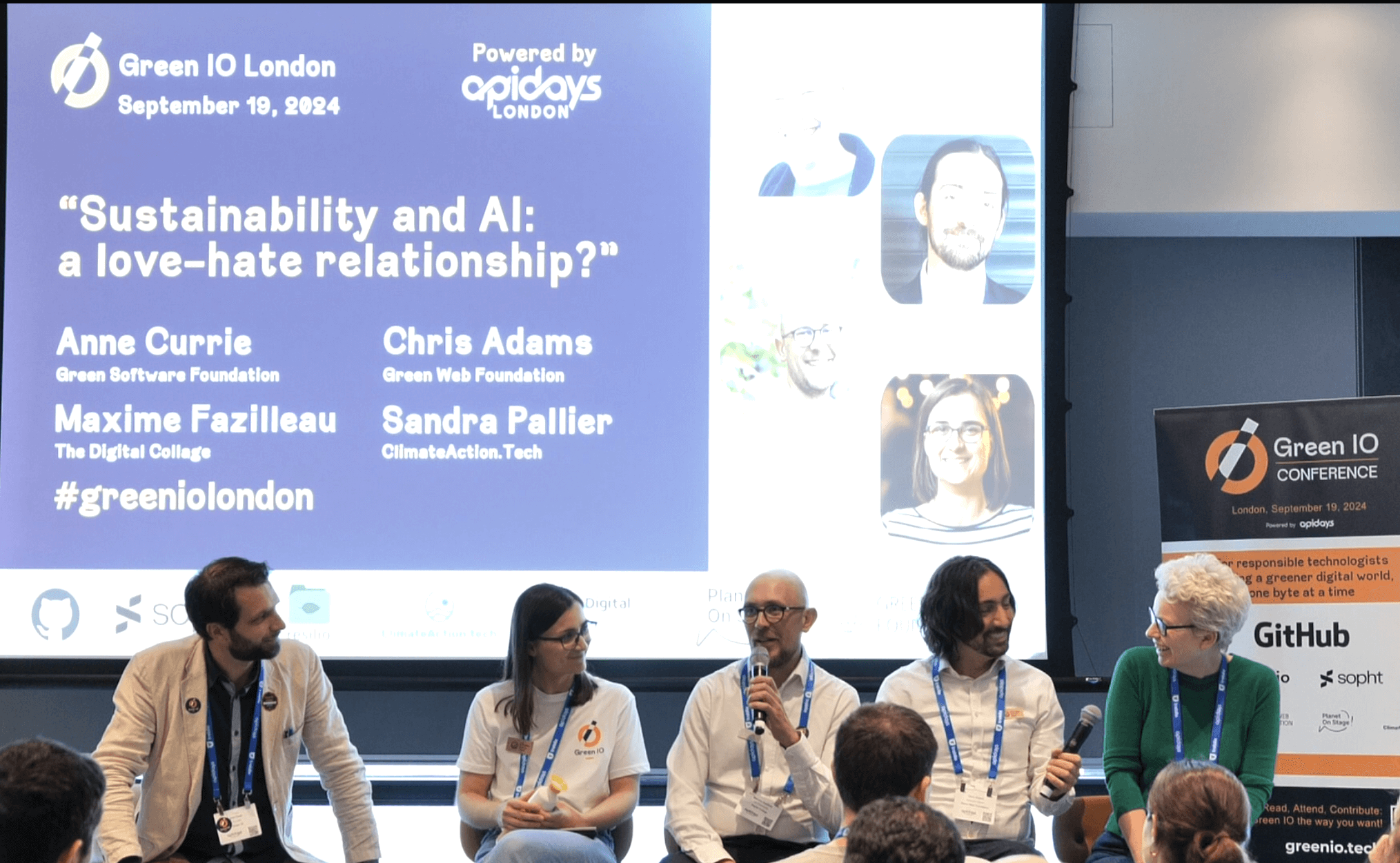Green IO London 2024
Oliver Cronk and I recently attended the Green IO London event, where we joined a passionate group of like-minded individuals to explore and discuss sustainable technology.
The event featured a full day of talks by a diverse range of speakers, covering a wide variety of subjects. The full line up of speakers and their slides are available on GreenIO
Key Takeaways
A major theme of the event was the urgent need for standardised and consistent data to measure emissions more accurately. The consensus is that without reliable data, organisations struggle to make informed decisions about third-party services and internal processes that could mitigate their digital carbon footprint.
There were also discussions on the misleading nature of greenwashing, where companies report market-based carbon emissions that don’t fully reflect their actual environmental impact. This highlights the need for more transparency and accurate reporting to truly reduce digital emissions.
Chris Adams’ keynote emphasised the growing role of legal frameworks such as the European CSRD and California’s CCDAA in driving consensus around emissions reporting. While these regulations are important, Adams cautioned against letting bureaucratic consensus slow down meaningful action.

Benjamin Schwarz addressed the complexities of measuring emissions within networks, that data transfer is not linear to energy usage. He offered an insightful analogy: walking instead of taking the bus may feel like reducing your carbon footprint, but if the bus still runs without you, the net reduction is no different. This illustrates the challenge of distinguishing between consequential and attributive emissions.
James Martin from Scaleway delved into cloud efficiency, going beyond just power efficiency (PUE) to also consider water consumption (WUE) and hardware. He pointed out that while large data centres often boast about energy efficiency, the staggering amount of water they use for cooling is often overlooked. Mark Butcher echoed these concerns, urging more transparency from cloud providers and for us to put more demand on them for better data on energy and water usage.

Demanding transparency from providers is negotiable as Tereze Gaile from Salesforce explained. She emphasised that every organisation has different needs, and what works for one might be a wasted effort for another, it provided a thought-provoking perspective on the things to focus effort on, transparency and collaboration. This idea was further reinforced by Amael Parreaux-Ey from Resilio, who stressed that proper planning and focus on the right problems are key to achieving reductions in carbon emissions. And importantly that doing something, even simple is better than doing nothing.
AI and Sustainability
Artificial Intelligence was of course another focal point, with discussions on emerging methods and data for measuring AI’s impact on sustainability. However, a common theme was the lack of transparency and data available to guide organisations in developing sustainable AI models. The growing demand for AI is driving the need for more computing resources, which in turn increases the need for building more data centres. There is potential to use existing open-source AI models where possible, but more importantly, the necessity of AI in every instance should be questioned.
 Gaël Duez (left) discusses sustainability and AI with (left to right) Sandra Pallier, Maxime Fazilleau, Chris Adams, and Anne Currie
Gaël Duez (left) discusses sustainability and AI with (left to right) Sandra Pallier, Maxime Fazilleau, Chris Adams, and Anne Currie
The Tech Carbon Standard
Throughout the event, I considered how the Tech Carbon Standard (TCS) could be used to help create this consensus, to “connect”, as Chris Adams puts it. The TCS can help align and frame every aspect of the digital landscape and provide a standardised framework in which we can organise and point to all the resources, data and methodologies that create this uniform consensus. It’s a great starting to place to begin breaking down the complexities and moving parts of a technology estate and enable organisations to start tackling each subject a piece at a time.
Conclusion
In conclusion, the event made it clear that while there are many promising approaches to reducing the environmental impact of technology, achieving meaningful progress requires transparency, accurate data, and focused efforts across the board. The role of regulations will be crucial, but the onus remains on organisations to ensure they are responsibly adopting sustainable practices and technologies.
For those that missed the event, Oliver Cronk had the opportunity to record parts of the event and interview some of the speakers:

